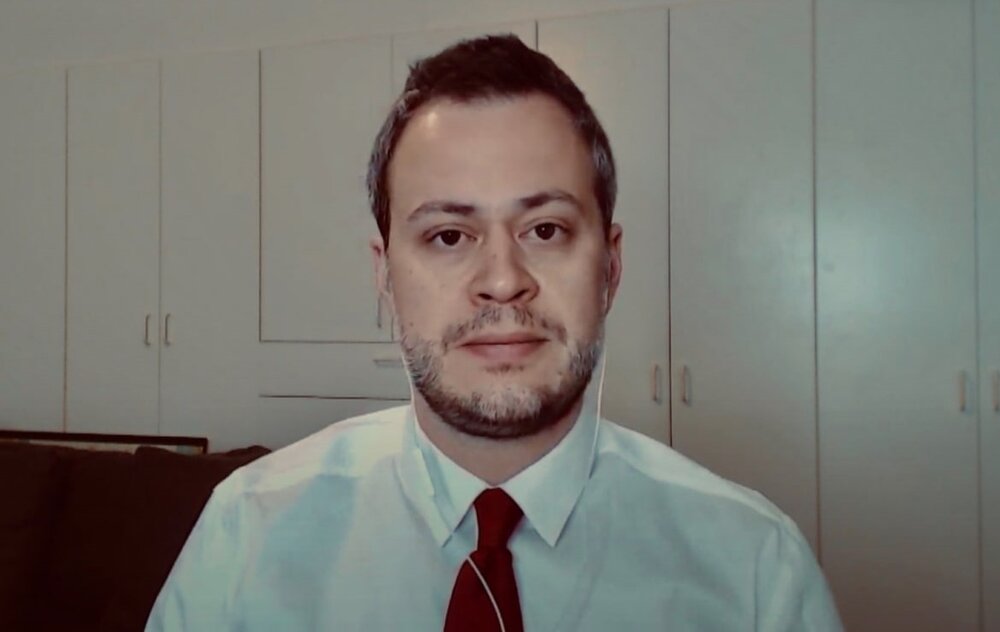By Mohammad Mazhari

TEHRAN - Giorgio Cafiero, chief executive officer of Gulf State Analytics (GSA), says that all Arab states have realized that maintaining partnerships with Moscow still serves their interests despite the U.S. pressure.
“Basically all Arab states have determined that maintaining partnerships with Moscow still serves their interests despite the U.S. pressuring them to join Washington and the EU’s failed efforts to make Russia a global ‘pariah’,” Cafiero tells the Tehran Times.
However, he says, “Russia is very far away from being able to replace the U.S. as a security guarantor for any GCC state.”
Following is the text of the interview:
Q: How do you assess Biden's trip to Saudi Arabia? What are its implications for Arab countries and Israel?
A: From the standpoint of U.S. interests, this trip was a mixed bag. Biden did not secure many of the major gains that some in Washington were hoping for before the U.S. President left for the Middle East (West Asia) earlier this month. Yet, most serious analysts understood from the beginning that many of those foreign policy wins were unlikely.
“It’s difficult to imagine team Biden uniting all of the GCC states in one anti-Iran alliance.”As of now, it does not appear that Biden’s trip did anything to bring Riyadh away from China or Russia. In terms of oil production, Biden received no firm commitment from the Saudis for an increase, although that may come later this year through OPEC Plus. One area where the U.S. administration can point to an accomplishment is the Saudi-Israeli relationship. Biden’s visit to Jeddah did not result in the Kingdom joining the Abraham Accords, but only naive pundits who don’t understand Saudi Arabia argued that a full normalization of ties between Riyadh and Tel Aviv was to be expected from Biden’s brief visit. Nonetheless, Biden going to the Kingdom coincided with Saudi Arabia announcing that the country will permit Israeli planes to access Saudi airspace. This development, along with other baby steps toward normalization in Saudi-Israeli relations, will enable Biden to tell the U.S. public and pro-Israel lobby groups that his administration is making progress when it comes to expanding the scope of the Abraham Accords.
Q: Do you see any about-turn in U.S. behavior when it comes to Saudi Arabia? Was MBS a pariah to Biden?
A: No. Biden’s use of the word “pariah” to describe Saudi Arabia in 2019 was for his campaign. As a candidate, he was addressing his constituents in the Democratic Party, many of whom grew increasingly upset with Saudi conduct and the special relationship that Donald Trump nurtured with the leadership in Riyadh. The Khashoggi murder made the Saudi Crown Prince Mohammed bin Salman particularly toxic in Washington at that time.
Yet once Biden entered the Oval Office in January 2021 it was evident that he had no plans to treat Saudi Arabia as a “pariah.” Biden’s team views Saudi Arabia and the other five GCC states as critical U.S. allies and partners in the Middle East (West Asia).
Q: Do you see harmony and integrity among Persian Gulf Arab states' positions when it comes to Iran? Is the Biden administration able to unite Arabs against Iran?
A: Ever since the GCC’s establishment in 1981, the sub-regional institution’s six members have had different perceptions of, and policies toward the Islamic Republic. No U.S. administration from Ronald Reagan (1981-1989) to Joe Biden (2021-present) has managed to unite all GCC states behind a single position in relation to Tehran. Given how each of the Persian Gulf’s Arab monarchies sees Iran in unique ways and has unique interests vis-à-vis Tehran, it is difficult to imagine team Biden uniting all of the GCC states in one anti-Iran alliance. It is particularly unlikely that the U.S. would be able to bring the Sultanate of Oman into any such alliance which targets Iran, especially mindful of the very pragmatic and cooperative relationship between Muscat and Tehran.
Q: Obama chose Cairo as a venue to address the Muslim world while Trump and Biden preferred Riyadh as the first station of their trips to West Asia. Is that a meaningful difference?
A: A consequence of the 2010/2011 Arab Spring uprisings has been a rise in the geopolitical influence and clout of the three most powerful GCC states Saudi Arabia, the UAE, and Qatar. Although Egypt, Syria, and Iraq were the traditional Arab heavyweights during the second half of the 20th century, it is the wealthy and relatively stable GCC states which have ascended in the Arab world’s 21st century geopolitical order. This point is critical to consider when answering this question.
Q: Do you think Biden is successful in persuading Saudi Arabia and its Arab allies to capitalize on the U.S. rather than Russia in terms of security and defense?
A: To an extent, the conflict in Ukraine has served U.S. interests in the sense that Russia’s military performance has given Arab states reason to question the wisdom of assessing Russia as a possible alternative security guarantor to the U.S. The warfare in Ukraine has resulted in Arab statesmen considering that Russia’s ability to project hard power in foreign lands may have been based more on abstractions rather than anything substantive.
To be sure, Russia is very far away from being able to replace the U.S. as a security guarantor for any GCC state. One must bear in mind that the Emirati leadership expected Washington, not Moscow, to protect the UAE in January 2022 following the Houthi missile and drone attacks against Abu Dhabi.
Nonetheless, the Ukrainian crisis has not resulted in Arab states wanting to walk away from Russia. Basically, all Arab states have determined that maintaining partnerships with Moscow still serves their interests despite the U.S. pressuring them to join Washington and the EU’s failed efforts to make Russia a global “pariah”. The leadership in Moscow is keen to constantly make this observation.

No comments:
Post a Comment